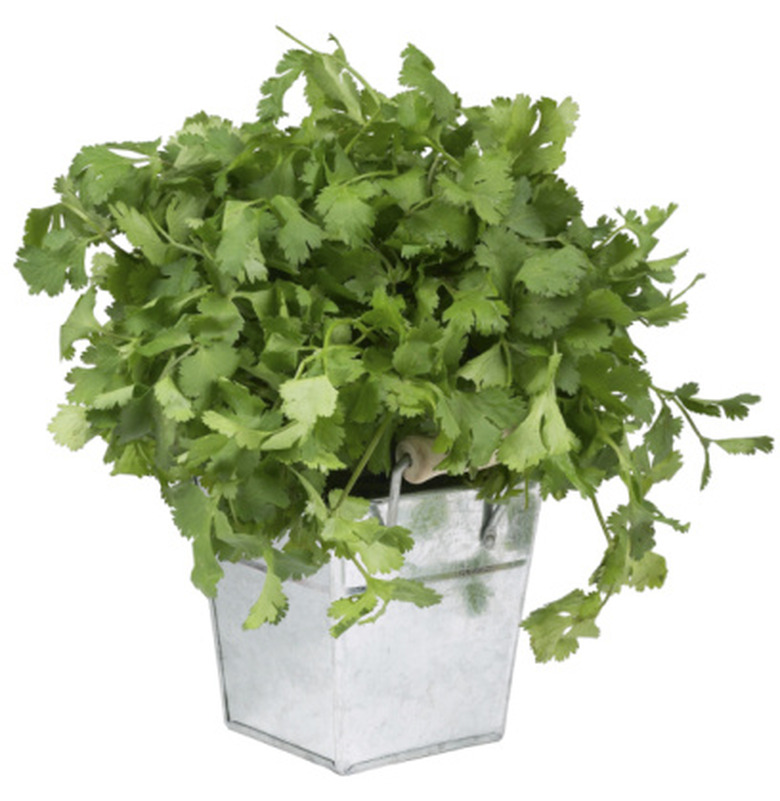Plants You Can Grow From The Grocery Store
Growing plants from fruits, vegetables and seeds purchased at the grocery store is an enjoyable learning experience for children and adults. Your first experience with this may have been watching carrot tops or sweet potato vines grow on the kitchen windowsill. Grocery store seeds can produce edible or ornamental plants, depending on the season and your location. Growing plants from grocery store produce and seeds is always an adventure, whether you end up with vegetables or beautiful flowers.
The Spice Aisle
The Spice Aisle
There are a few herbs that can be grown from seeds purchased in the spice section of your local grocery store. Coriander (cilantro), dill and fennel can all be grown from these seeds. Buying organic seeds is best, because nonorganic spice seeds can be treated with chemicals or irradiated to keep them from sprouting. Testing germination by placing them between layers of wet paper towels for a few days is wise before wasting seeds that won't grow. If they germinate, plant and grow these seeds as you would any other herb seed. Celery and mustard seed are also candidates, depending on your area and your personal preferences. Peppercorns have been known to produce plants, but the niger species does not grow well in all climates.
Sprouting Seeds
Sprouting Seeds
Some grocery stores sell seeds for sprouting, such as alfalfa, greens and beans. Remember that any seed that will sprout will grow a plant. The best thing about these seeds is that they are usually organic and not treated with chemicals so that they will be able to sprout. There is no need to test germination for these seeds, which saves time and takes away the guesswork. Plant and grow these just like regular garden seeds.
Grains
Grains
Some grocery stores sell bulk grains such as wheat, barley and buckwheat that can grow greens for you and your animals. These greens can be added to soups, smoothies and other dishes and are a favorite of those seeking better health. Growing your own greens is relatively easy and ensures freshness, as opposed to using green powders. Cats love having a box of greens to chew on, which adds needed chlorophyll, vitamins and roughage to their system.
Peas, Beans and Lentils
Peas, Beans and Lentils
The next time you cook a pot of beans, save a few out and grow some more. Most dried legumes bought in the grocery store, especially those sold for sprouting, will grow a nice crop in your garden. Organic dried beans are easy to find in most groceries and easily are obtained from health food stores. Legumes are full of vitamins, minerals and are an alternate, fat-free source of protein.
Houseplants and Flowers
Houseplants and Flowers
Growing an avocado from a seed is an enjoyable experience for children – and avocados make nice houseplants. Even if you live where tropical plants can't be grown outside, avocados, mangos, citrus, and other fruit trees are attractive and add a tropical feel to your home. Sweet potatoes can be grown in water and make beautiful vines. Kumquat, Key lime and mandarin orange plants have compact growth and small, glossy dark green leaves. Place these plants outdoors during the summer to adorn your patio.
Sunflower seeds sold for eating will grow giant sunflower plants, while the smaller seeds in bird seed will grow shorter, smaller sunflowers. Flax seeds grow into a tall plant with bright blue flowers. Poppy seed grows a wide variety of brightly colored flowering plants.
Considerations
Considerations
Hybrid fruits and vegetables will not come true from seed, so you may not get what you think you planted. Many plants grown for commercial spice and sprouting seed are open-pollinated, so you never know what you will get. Tropical plants may require more sun than you have available in your home, even in your sunniest window. Whatever you end up with from the seeds you plant, the enjoyment is in the experience.
